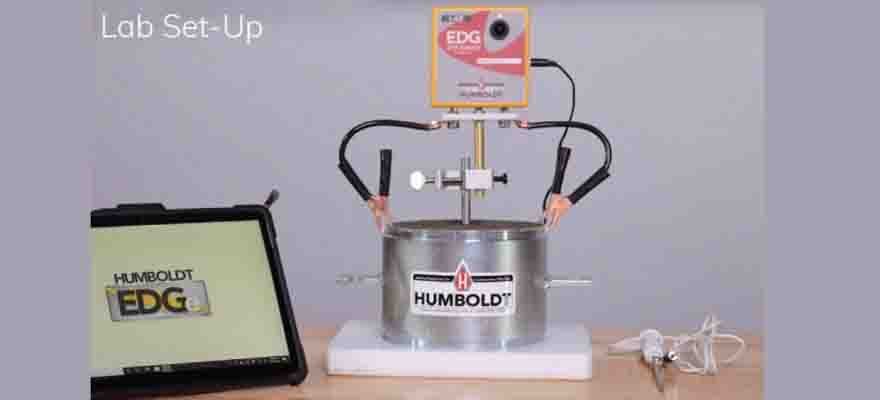Field Testing Equipment: An Essential Guide for Professionals in Every Industry
Field testing equipment is a cornerstone for professionals across industries such as construction, geotechnical engineering, environmental monitoring, and materials testing. With rapid advancements in technology, field testing tools have become more accurate, efficient, and versatile, ensuring that projects meet rigorous safety and quality standards. This guide delves into the most essential field testing equipment and their applications, helping professionals make informed decisions.
Non-Nuclear Density Gauge: Revolutionizing Soil Compaction Testing
The Non-Nuclear Density Gauge is a groundbreaking tool that offers an efficient and environmentally friendly way to measure soil compaction. Unlike traditional nuclear methods, these gauges use electromagnetic or other non-hazardous technologies, eliminating the need for stringent licensing and handling protocols. They are essential for road construction, earthworks, and other civil engineering projects where precise soil compaction measurements are critical.
Concrete NDT Equipment: Ensuring Structural Integrity
Non-destructive testing (NDT) of concrete is vital for assessing the structural integrity of buildings and infrastructure without causing damage. Concrete NDT Equipment allows engineers to evaluate parameters such as compressive strength, durability, and surface hardness. Ultrasonic pulse velocity (UPV) testing, a popular NDT method, ensures the detection of internal flaws, which is crucial for maintaining long-term structural safety.
Slope Stability Analysis Software: Preventing Catastrophic Failures
Slope failures can lead to devastating consequences in mining, construction, and other industries. Slope Stability Analysis Software plays a critical role in evaluating the stability of slopes, embankments, and excavation sites. By leveraging advanced algorithms, this software provides insights into potential failure zones, enabling engineers to design safer and more reliable structures.
UPV Test Services: The Gold Standard in Concrete Testing
Ultrasonic Pulse Velocity (UPV) testing is one of the most effective methods for assessing the quality and uniformity of concrete. UPV Test Services are widely used to detect cracks, voids, and other imperfections in concrete structures. This non-invasive technique is indispensable for ensuring compliance with international quality standards.
Vibration Monitoring Equipment: Safeguarding Structural Health
Monitoring vibrations in structures is essential for preventing damage and ensuring safety in buildings, bridges, and industrial facilities. Vibration Monitoring Equipment helps professionals track dynamic forces, allowing for timely interventions when unusual activity is detected. These systems are especially critical in areas prone to seismic activity or heavy machinery operation.
Pressure Aging Vessel: Testing Asphalt Durability
The Pressure Aging Vessel (PAV) is a specialized device used to simulate the long-term aging of asphalt binders under high pressure and temperature conditions. By replicating decades of wear and tear, this equipment helps researchers and engineers design more durable pavements, reducing maintenance costs and extending service life.
Bond Pull-Off Test: Evaluating Adhesive Strength
Adhesion testing is critical for assessing the bond strength between layers in coatings, adhesives, and composite materials. The Bond Pull-Off Test is a reliable method for determining the force required to separate bonded layers, ensuring compliance with industry standards and enhancing product performance.
Soil Testing Equipment in India: Supporting Infrastructure Development
Soil testing is the foundation of any construction project. Soil Testing Equipment in India offers a range of tools to evaluate soil properties, including permeability, shear strength, and compaction. These tests are indispensable for designing stable foundations and ensuring the safety of large-scale infrastructure projects.
Indirect Tensile Strength of Asphalt: Advancing Pavement Research
Measuring the Indirect Tensile Strength of Asphalt is a key step in understanding its resistance to cracking under tension. This test is particularly useful in evaluating the performance of asphalt mixes in different environmental conditions, helping engineers optimize pavement designs for enhanced durability.
Marshall Stability Equipment: Assessing Asphalt Quality
Marshall Stability Equipment is widely used to evaluate the strength and stability of asphalt mixtures. By simulating real-world loading conditions, this equipment helps engineers ensure that pavements can withstand traffic loads and adverse weather conditions.
Geotechnical Modeling Software: Enhancing Design Precision
Geotechnical Modeling Software is a powerful tool for simulating and analyzing soil-structure interactions. It is invaluable in the design of tunnels, retaining walls, and deep foundations, offering engineers a reliable way to predict performance and mitigate risks.
Conclusion
Field testing equipment is an essential component of modern engineering and construction practices. From ensuring the quality of materials to evaluating structural stability and safety, these tools empower professionals to make informed decisions and achieve superior project outcomes. Investing in advanced technologies such as non-nuclear density gauges, concrete NDT equipment, and geotechnical modeling software is not just about meeting standards—it’s about building a safer and more sustainable future.







